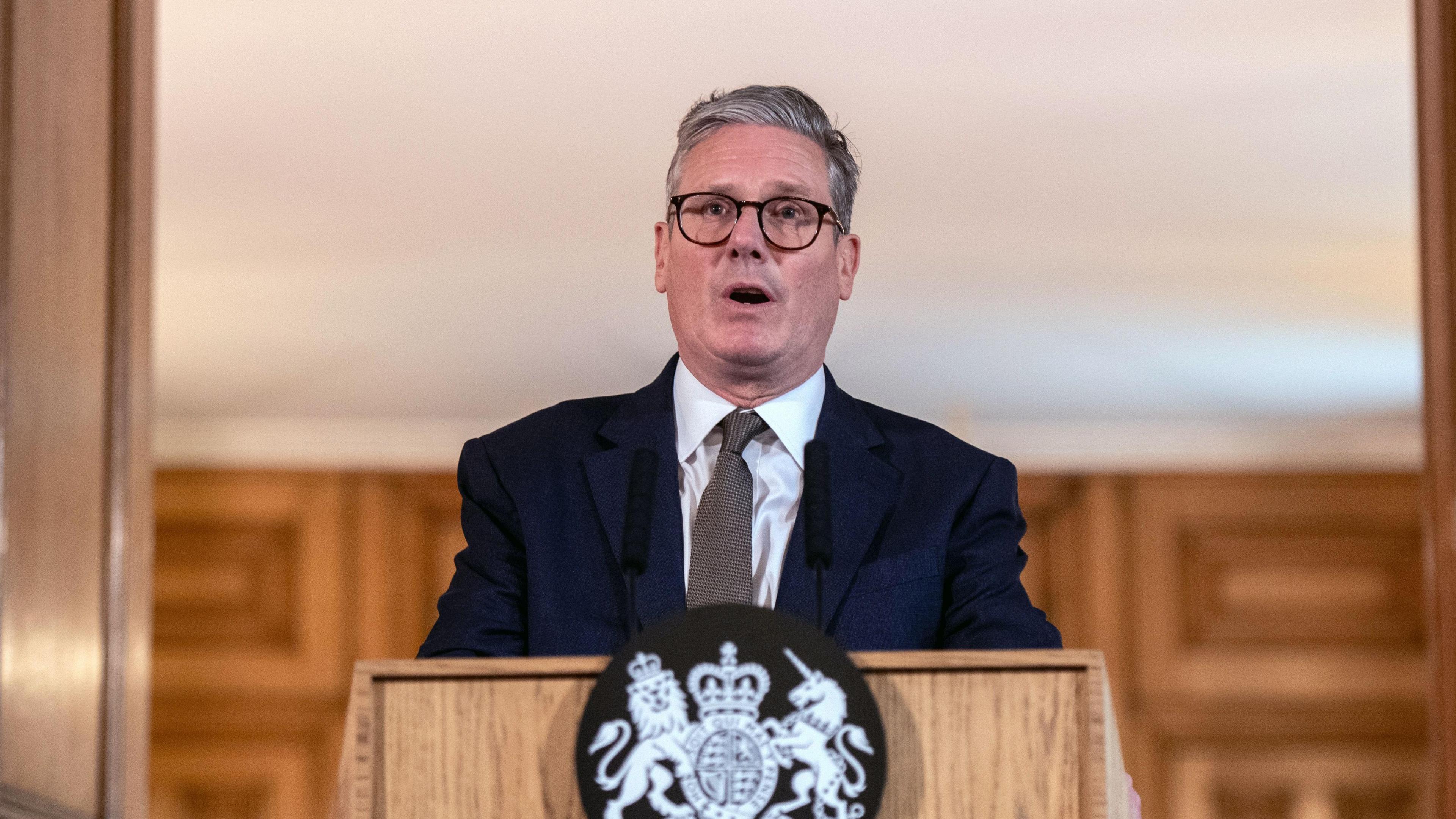What can we learn from Starmer's first day as PM?

- Published
The last time I recall a cabinet meeting on a Saturday was during the Brexit years and the time before that was due to the Falklands War.
In other words, they are rare.
This one was about cracking on, and being seen to crack on, with the job of government with a momentum and energy.
Standing in Downing Street and watching and talking to ministers – as we will get used to calling them – there was a first day at school vibe.
Easy smiles, time to chat with the security staff, an excitement to clutch a red ministerial folder.

The novelty will no doubt wear off for them, and the slog of governing kick in. But this time, at least, there was a knowing awareness of the magnitude of this moment for them.
It is 14 years since Labour ministers wandered around in Downing Street.
And it is 27 years since they last kicked the Conservatives out of office.
A couple of hours later Sir Keir Starmer looked comfortable, even relaxed, in the role of prime minister in his first news conference.
Us reporters were led to the State Dining Room in the heart of No10, rather than the specially designed room in No9 built by the last government and associated in particular with rows about parties during the pandemic.
These kinds of things do not happen by accident and who knows if this government will use the newer room on camera in future, but it was a visual marker of change.
Sir Keir claimed to us that his government would confront the challenges it confronts with what he called a “raw honesty”.
He and his ministers have already described prisons and the NHS in England as “broken”.
How long there will be a patience with them blaming their predecessors, let’s see.
What we will see next – and has been telegraphed in advance – is a blitz of activity and travel from the prime minister.
It turns out that when you win a general election the meeting, greeting, dashing and smiling roadshow doesn’t end with a trip to the polling station.
Sir Keir will travel to Edinburgh, Belfast and Cardiff in the next day or so and will meet England’s mayors on Tuesday.
After that it will be a flight to Washington DC for the annual summit of the Nato defence alliance.
A chance for the prime minister to meet fellow world leaders – and to be on a stage only presidents and prime ministers get an invite to.
The week after (in other words, inside the next fortnight) there will be a King’s Speech – the State Opening of Parliament – where the government will set out its planned new laws.
And then Keir Starmer will welcome around 50 fellow European leaders to Blenheim Palace in Oxfordshire the day after, for a meeting of what is known as the European Political Community, a new-ish body separate from the European Union.
A whopping majority after offering “change” – coupled with a low turnout and a share of the vote lower than any other single-party post-war government – may afford this administration little time to demonstrate, if it can, that it is capable of delivery.
They are determined not to waste any time.